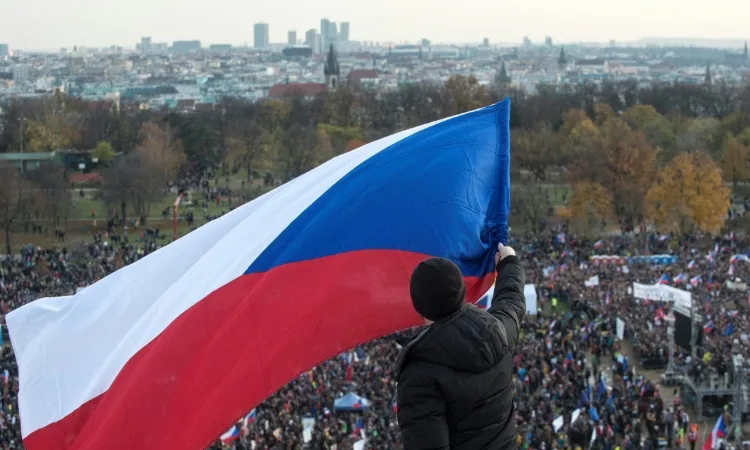News Flash

PRAGUE, Nov 17, 2025 (BSS/AFP) - Czechs and Slovaks will rally in both countries Monday, the anniversary of the 1989 Velvet Revolution that toppled communism in former Czechoslovakia, to denounce the leaders they say have betrayed its legacy.
On November 17, 1989, communist police brutally crushed a peaceful student march in the centre of Prague, sparking an uprising that toppled the Moscow-steered regime after four decades.
Like in the other Soviet-bloc countries at the time, the revolution restored democracy in Czechoslovakia, which then split into the Czech Republic and Slovakia four years later.
This year, protests have been called in both countries -- in Prague against the emerging government of billionaire leader Andrej Babis and in Bratislava and other Slovak cities against nationalist Kremlin-friendly Prime Minister Robert Fico.
"Do we really want to live in a state where politicians are above the law?" said Mikulas Minar, the head of the Million Moments for Democracy movement organising Monday's rally in Prague's Old Town Square.
The movement brought out a quarter million anti-government protesters in Prague in 2019 when Babis was premier of the Czech Republic, an EU and NATO member of 10.9 million people.
- A 'mafia principle' -
Babis is in talks with the far-right SPD and the right-wing Motorists to form a government after his catch-all ANO party won a general election in October.
Babis, a former Communist and the seventh wealthiest Czech according to Forbes magazine, is facing trial over EU subsidy fraud.
The 71-year-old Slovak-born politician has denied any wrongdoing, calling the allegations a smear campaign.
Minar said Babis and SPD leader Tomio Okamura, facing trial over inciting hatred, may want to back each other up to avoid punishment if they sit in the same government.
"The new government is emerging on a mafia principle," he added.
- 'Counter to democracy' -
In Slovakia, protests against Fico's government are to be held in several cities including the capital Bratislava.
"Our government is taking steps that run counter to democracy," said fellow organiser Marian Kulich. "It is returning us to the world before 1989."
The 61-year-old Fico, also a former Communist, is serving a fourth term as prime minister in the EU and NATO member of 5.4 million people.
Since his return to office, Fico's government has launched a crackdown on non-profit organisations, cultural institutions and some media outlets it deems "hostile", sparking large protests in the heavily polarised country.
Fico has also angered Slovaks by fostering close ties with Russian President Vladimir Putin and rejecting military aid to Ukraine, battling a Russian invasion since 2022.